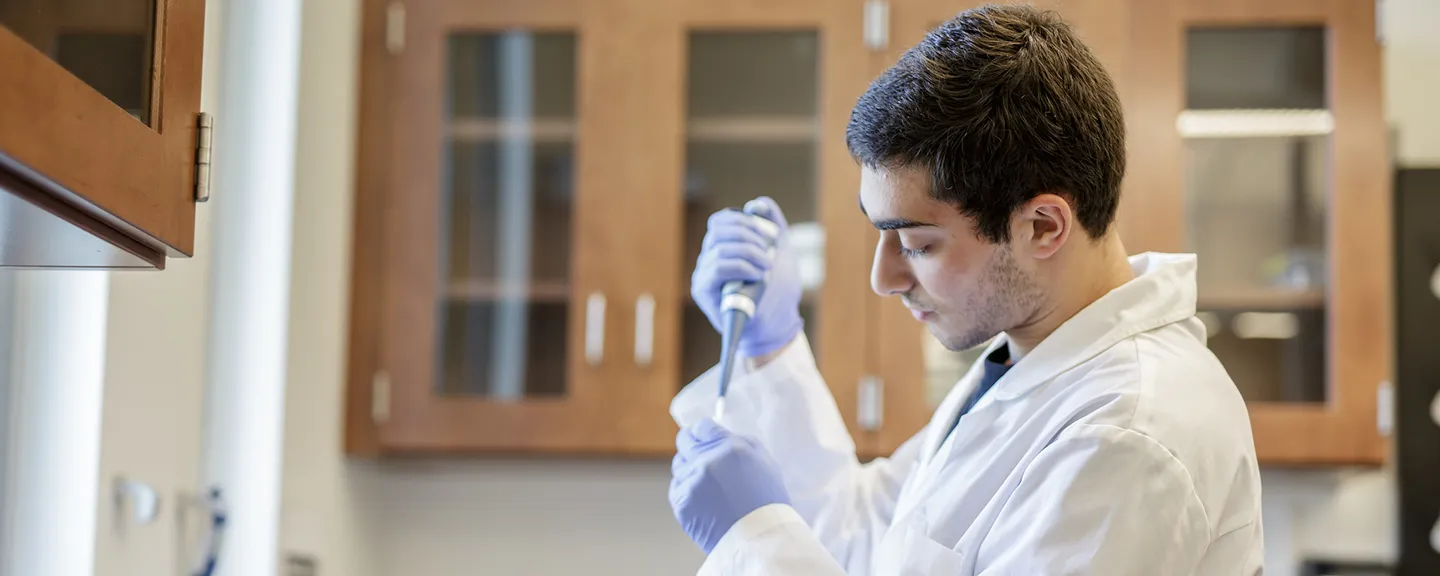- Home
- >
- APU Articles
- >
- News Article
Azusa Pacific Students Conduct Innovative Research with Caltech University
June 29, 2021 | Written By Abigail Reed

This summer, under the guidance of Sándor Volkán-Kacsó, PhD, associate physics professor, Suiter and Panossian will receive funding from Caltech to continue their research on F-ATP synthase, an essential enzyme in all known forms of life.
“This experience will grow both students, deepening their understanding of research and analytical skills, as well as preparing them for their future career paths,” said Volkán-Kacsó. “In addition, it strengthens the partnership between APU and Caltech as we look ahead to more research opportunities.”
While in the SURF program, both students will receive a $6,620 award for the 10-week period, attend weekly seminars by Caltech faculty and Jet Propulsion Laboratory scientists and engineers, and engage in an academic and professional development series. Their research will culminate in a written technical paper and oral presentation at a professional SURF seminar.
Suiter and Panossian will advance their research on the F-ATP synthase, also known as F-ATPase. This enzyme—found in bacteria, the chloroplast of green plants, and eukaryotic cells—uses motors to synthesize ATP, energy-carrying molecules. In short, these tiny motors, just a few nanometers across, are essential to life.
Scientists have found an unusual, sporadic behavior in the motors of a bacterial version of F-ATP synthase. Under the guidance of Volkán-Kacsó, Suiter has spent the last two years consulting large volumes of experimental data on these motors, developing analytical tools to peek behind the noise and attempt to explain the seemingly unpredictable behavior.
During the SURF program, Panossian will join their team as they continue their data analysis, develop theories, and conduct tests using APU’s new supercomputer to run large-scale simulations. Their research will help deepen scientists’ understanding of this essential enzyme, as well as provide progress on analytical tools and methods when consulting data.
“The APU team is performing research in the field of single-molecule biophysics. We use theoretical modeling and computer simulations to study the biological function of the F-ATPase, a rotary biological nanomotor," said Volkán-Kacsó. "In recent years, these nano machines of life have been studied one motor at a time using single-molecule imaging methods. Scientist are basically making high-speed “movies” using advanced microscopies that try to follow the rotation of the tiny motors. Our group then applies models to extract the biological behavior of the motor."
For Panossian, a chemistry and honors humanities double major, joining this research opportunity is an exciting next step toward her life goals.
“As a first-generation college student with parents who immigrated from Lebanon, this partnership with Caltech is a big move forward for me,” said Panossian. “It means the world to be able to conduct research with outstanding faculty, grow my connections, and continue my education journey.”
As Panossian works in the laboratory, discusses classic works with her fellow honors humanities’ classmates, and attends chemistry courses, her faith remains at the center of all that she does—she is grateful for APU’s Christian commitment and encouraging faith community. After graduating from APU, Panossian plans to pursue her doctorate in chemistry and continue research work in the laboratory. Eventually, she hopes to become a professor, using her experience to teach and inspire the next generation of scientists.
Suiter, a systems engineering and honors humanities double major, is excited to continue with the Caltech SURF program fellow for the second summer in a row.
“The research we’re conducting pushes me beyond my current level of studies, refining my adaptability and problem-solving skills,” said Suiter. “From sifting through complicated data, testing theories, and learning how to create a scientific presentation, APU and the SURF program have given me the opportunity to master the craft of research.”
When not researching, Suiter enjoys studying humanities in the Honors College, especially exploring the relationship between philosophy and the sciences. He is currently seeking God’s direction for his future, planning to either attend graduate school, become a system engineer, or pursue humanitarian work overseas.
“It is very inspiring to see both these students demonstrate high levels of interest, care, and drive in our research together,” said Volkán-Kacsó. “Their energy and new ideas often drive the process forward, and I am excited to see what their futures hold.”